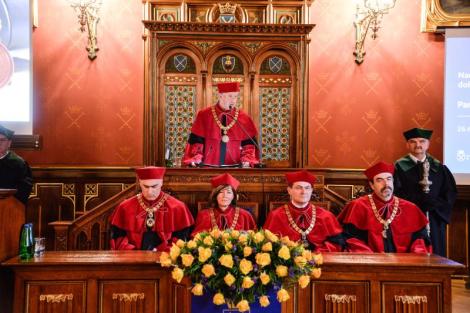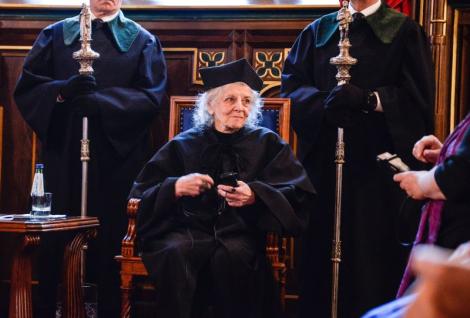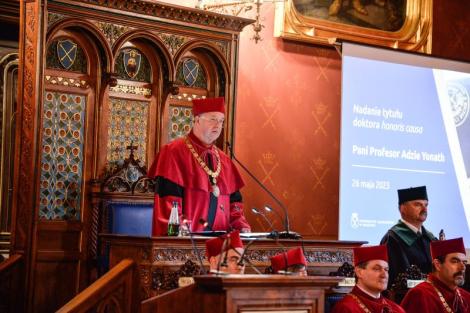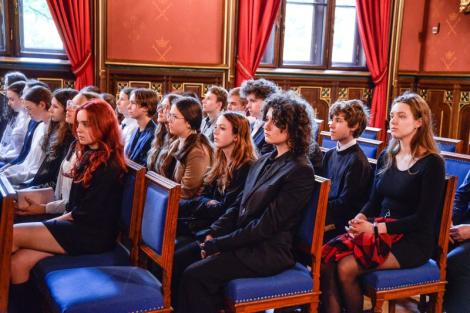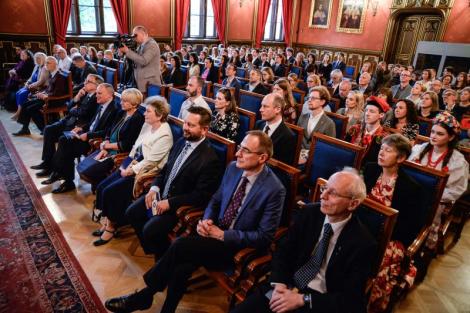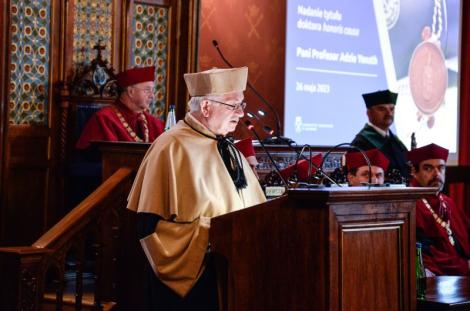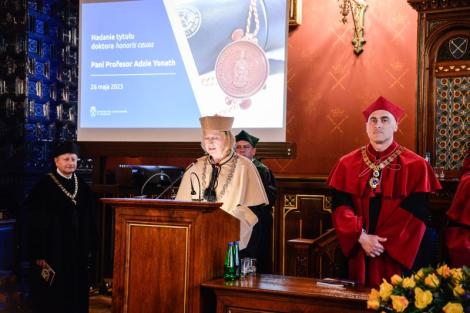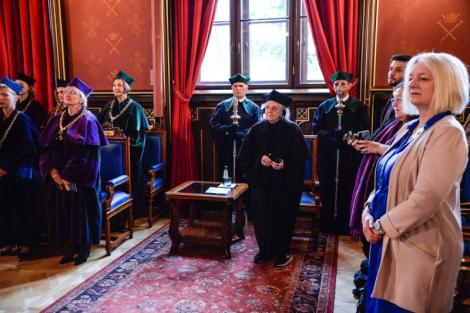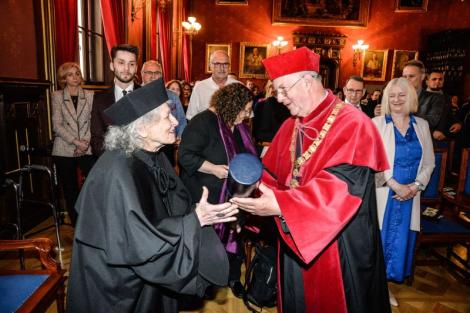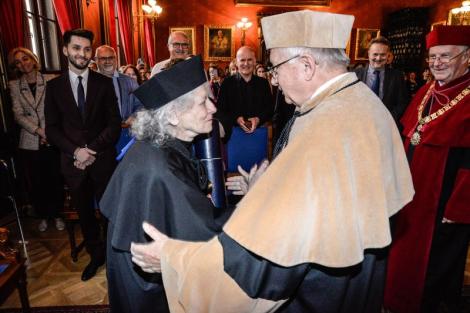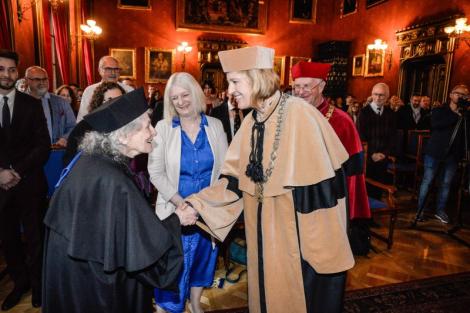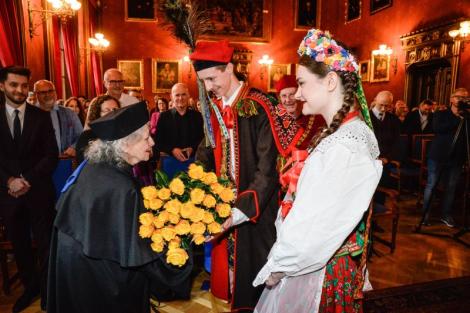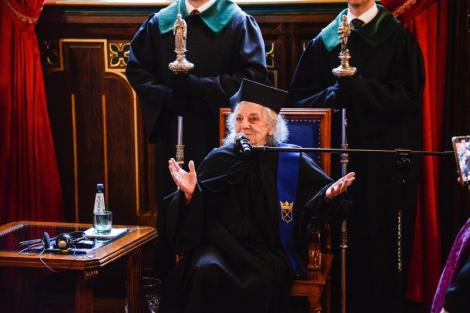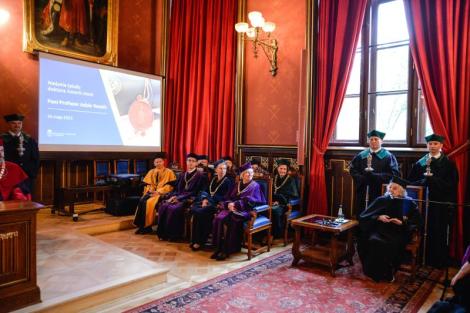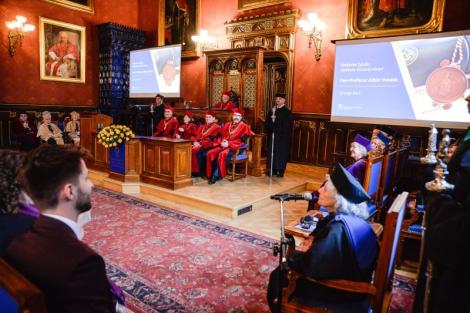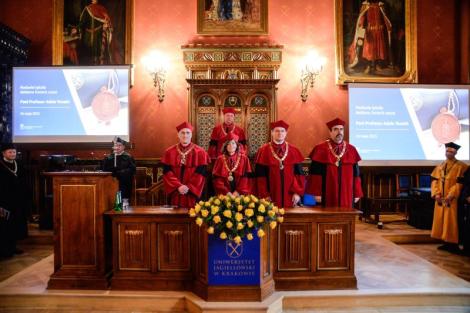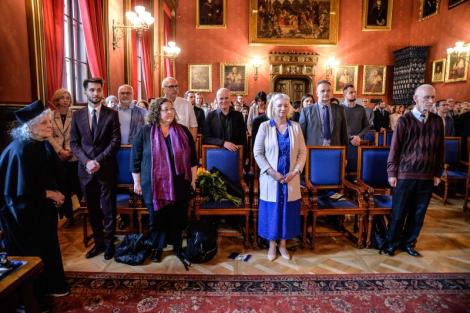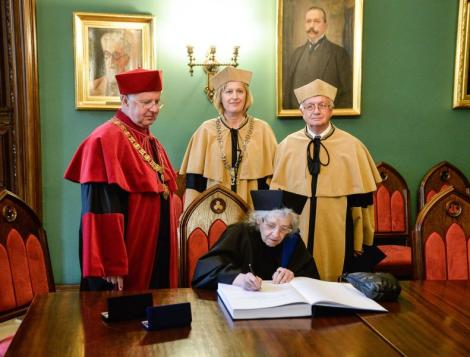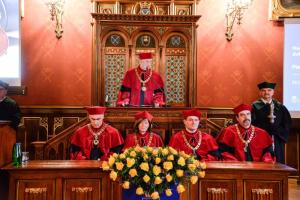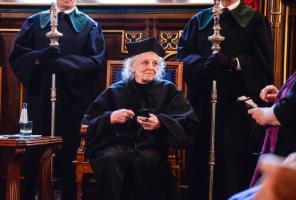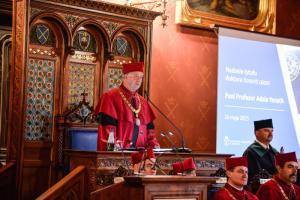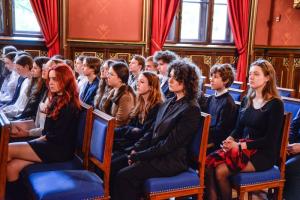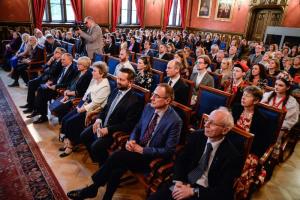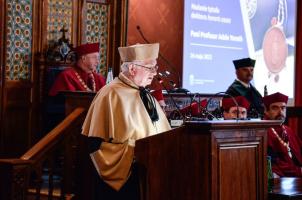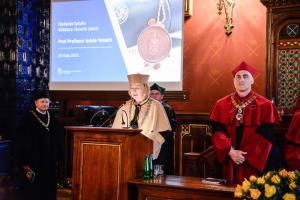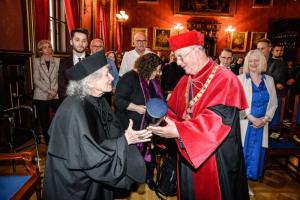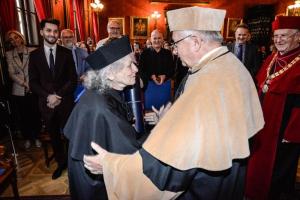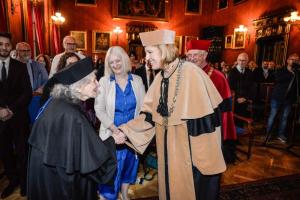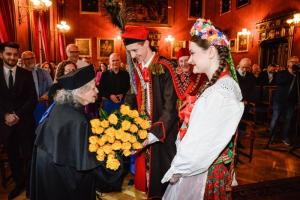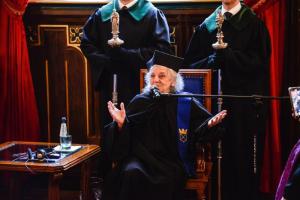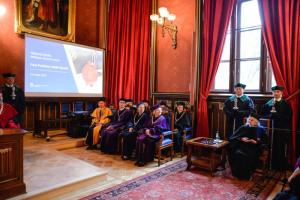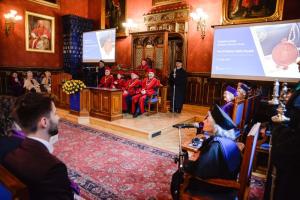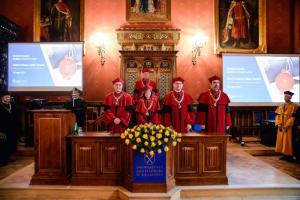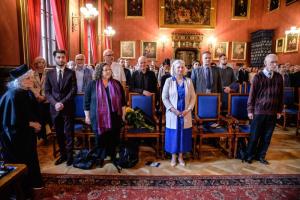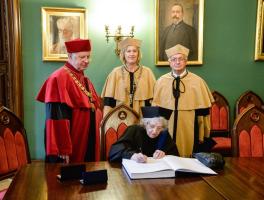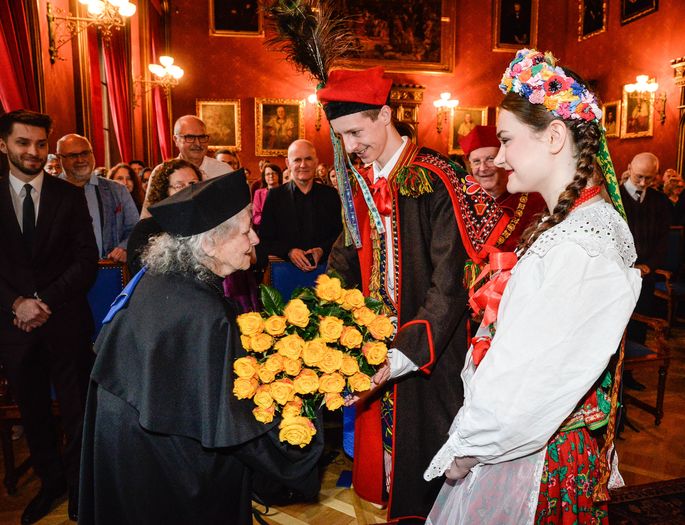
On 26 May 2023 the Israeli scientist Professor Ada Yonath, who received the Nobel Prize in Chemistry in 2009 for her pioneering studies into the structure and functions of ribosomes, was conferred doctorate honoris causa of the Jagiellonian University.
In her research, Prof. Ada Yonath, whose parents came from Poland, has focused on biosynthesis of proteins, antibiotics that inhibit this process, diseases related to ribosomal mutations, as well as the origins of life. She is the Director of the Kimmelman Center for Biomolecular Structures at the Weizmann Institute of Science, where she obtained the PhD degree, and currently works as a professor. In 2009, together with Venkatraman Ramakrishnan and Thomas Steitz, she won the Nobel Prize in Chemistry for the structure and functions of ribosomes.
The Jagiellonian University conferred its most prestigious honorary title upon Prof. Ada Yonath for her pioneering and ground-breaking achievements in investigating the three-dimensional ribosome structure in atomic resolution, the identification of proto-ribosome as a connector between worlds dominated by RNA and RNA-protein, the introduction of new revolutionary concepts and tools to crystallography studies, demonstrating how antibiotics inhibit the process of protein translation in bacterial ribosomes, and studies into antibiotic resistance prevention. The Nobel laureate was also recognised for her services to the Jagiellonian University, related to her work in the International Advisory Board at the JU Małopolska Centre of Biotechnology as well as her research collaboration with the JU Faculty of Biochemistry, Biophysics and Biotechnology.
In his laudatory address, Prof. Kazimierz Strzałka, Director of the Małopolska Centre of Biotechnology briefly discussed Prof. Yonath research career and achievements, pointing out to her extraordinary scientific curiosity that dates back to the early childhood. He also referred to the origins of ther interests in medical research, which began during the compulsory military service in medical corps, when she became particularly interested in structural studies of collagen. A large part of the address was devoted to Prof. Yonath’s studies on biosynthesis of proteins, which resulted in the 2009 Nobel Prize award. Prof. Strzałka pointed out that her most significant research achievements were made despite unfriendly attitude of a large part of international scientific circles, whose comments on her efforts often included lack of faith, or even sarcasm. He stressed that today her discoveries play a profound role in medicine and provide the basis for further innovative research.
Expressing her gratitude to the Jagiellonian University, Prof. Yonath referred to another Nobel laureate, Marie Skłodowska-Curie, indicating that she and her daughter were the first to use X-ray radiation in Medicine. She stressed that the Polish scientist has always been her role model and source of inspiration.


